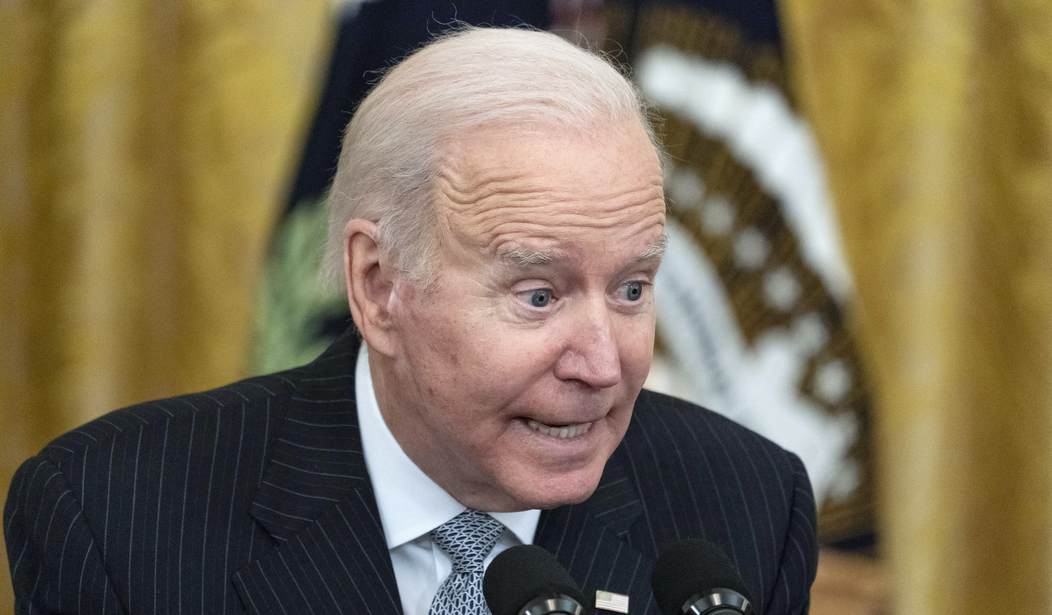It’s fair to say that at least some Democrats get the fact that defunding the police isn’t popular with the public, especially at a time when violent crime rates are quickly rising. Joe Biden (or his handlers) certainly seem to understand the politics of the issue, which is why the president was palling around with former NYPD captain and current NYC mayor Eric Adams during his trip to the Big Apple last week instead of asking Alexandria Ocasio Cortez for her insights and analysis on how to make the city a safer place.
But there are still plenty of AOCs on the left, and with Joe Biden’s popularity on the wane even among Democrats, the party isn’t exactly in lockstep agreement about how to address violent crime, especially locally. Take the current debate in Maryland, for instance, which revolves at least in part around some Democrats’ demands for banning “ghost guns” versus Gov. Larry Hogan’s insistence on targeting violent offenders versus Baltimore mayor Brandon Scott’s pointing the finger at, well, almost everyone but him.
On the campaign trail, then-candidate Brandon Scott pitched to voters that he would be able to get homicides under 300 in his first year in office. That didn’t happen. Now, he’s doubling down on a different type of messaging that calls on the community to save each other.
“We are going to work every day. It’s bigger than Baltimore City government. I’m focused on my work; I’m going to be here, and I love Baltimore,” Scott said when asked what he says to critics of his job curbing violence. “They are the only ones who I respond to, not you, not unofficial polls, not folks at your station that want to create hysteria. This is about people’s live being lost and I’m pissed off about it.”
The same dynamics are at work in Little Rock, Arkansas, where local activists and politicians are divided on what strategies should be deployed to target violent crime.
Some think that additional personnel or resources from Arkansas State Police or even the Arkansas National Guard would help put fearful citizens at ease while also relieving Little Rock Police, who they view as overstretched. Others dismissed the notions as unhelpful knee-jerk reactions that would just lead to overly strict enforcement.
After four days of shootings that killed one person and injured 11 more, Little Rock Mayor Frank Scott called for an emergency declaration Tuesday because of the violence.
The resolution eventually passed by the board — over one ‘no’ vote — called for a “holistic approach” that emphasized support for grassroots violence-prevention programs while lifting for 30 days financial limits on Little Rock police overtime and directing the department’s officers to increase patrols in parts of the city considered especially violent.
This “holistic” approach may give Democratic politicians a little bit of cover, but there’s still a stark divide between those who say that crime can’t be seriously addressed unless its root causes are tackled and those who believe the answer lies with more effective enforcement of the law (and maybe some new gun control laws to boot).
The problem is complicated, acknowledged Benny Johnson, founder of Arkansas Stop the Violence, who said that while he is still a believer in community programs that offer a better life for teens and their parents or guardians in the city, he would like to see Humphrey accept more help from other agencies.
“[There’s] nothing wrong with him asking for outside help,” Johnson said.
Johnson thinks the city would benefit from a more robust state task force to get illegal guns off the streets, and thinks that State Police or Pulaski County deputies could be an important part of that.
Little Rock Police officers do serve on task forces with federal partners from the Drug Enforcement Administration, the Bureau of Alcohol, Tobacco and Firearms and the FBI.
Still, Johnson had concerns about over-policing and the potential for racial profiling in the name of stopping the gun violence that has citizens fearful. He expressed a desire for the agencies to strike a balance in their efforts.
“You can’t have policing where you patrol and control,” Johnson said, and still expect citizens in high-crime areas to want to work with law enforcement.
Unfortunately, as divided as Democrats may be when it comes to crime and punishment, they’re mostly on the same page when it comes to viewing our right to keep and bear arms as a wrong that must be “corrected” through new legislation. The defund-the-police supporters may prefer laws targeting the firearms industry while establishment Democrats also want criminal penalties for individual gun owners, but both wings of the Democratic Party are still intent on pushing the idea that the general public cannot be safe until our individual right to keep and bear arms have been obliterated.









